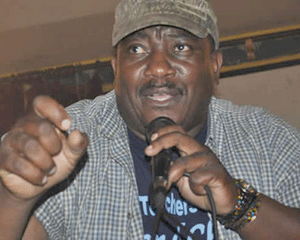
HUNDREDS of students around the country have not been attending classes since the beginning of this term, after several boarding schools barred them for non-payment of fees.
BY OUR STAFF
It is now a requirement in most schools that a student produces a receipt showing proof of payment at the gate before being allowed into the dormitories.
Parents claim that in most government and mission schools, this requirement was being effected by members of the school development committees (SDCs) without their approval.
At one school in Mashonaland East province, nearly a quarter of students in one class failed to attend lessons for two weeks as their parents struggled to raise the full fees.
“It is so unfair because they are not accepting a payment plan,” said one of the parents, who had brought half of the US$400 the school needed. “They should understand that some of us are civil servants and earn very little.”
Another parent, Aaron Sigauke, whose child was not admitted at a school in Masvingo, said the ministry of education had to look into the matter, as it was adversely affecting students.
“It [ministry] is silent when headmasters and SDCs are destroying the education sector,” said Sigauke.
- Chamisa under fire over US$120K donation
- Mavhunga puts DeMbare into Chibuku quarterfinals
- Pension funds bet on Cabora Bassa oilfields
- Councils defy govt fire tender directive
Keep Reading
Some of the parents said they had since transferred their children to day schools in urban or rural areas but vacancies were increasingly becoming problematic due to the soaring demand.
Progressive Teachers Union of Zimbabwe (PTUZ) secretary-general, Raymond Majongwe last week confirmed that some schools were turning away students.
He said this was contrary to a government directive that failure to pay fees should not hinder children from learning.
“The problem is that schools are being run with two command structures, one being the education ministry and the other being the school development committee and the school head,” Majongwe said.
He said that while the ministry said no child should be sent away for non-payment of fees, the SDCs still insisted on no learning until fees were paid.
Majongwe said the most affected were children of civil servants whose parents earn hardly enough for them to pay fees on time and also cover other family expenses.
Zimbabwe Teachers Association (Zimta) chief executive, Sifiso Ndlovu said his organisation was not aware that some schools were turning children away from schools for failure to settle fees.
“Most schools did not increase fees this term and what we know is that SDCs are the ones who sometimes turn children away for failure to pay levies and not fees,” Ndlovu said.
He added that school heads could not be sending children away because they were in the forefront of supporting the government’s policy on fees.
Ndlovu said parents who could not afford paying school fees should apply for assistance under the Basic Education Assistance Module (Beam).
Attempts to reach Education, Sport, Arts and Culture minister David Coltart were futile as his mobile went unanswered.
Zimbabwe’s education system was once among the best in Africa, before suffering from a major dent due to a decade-long economic decline.











